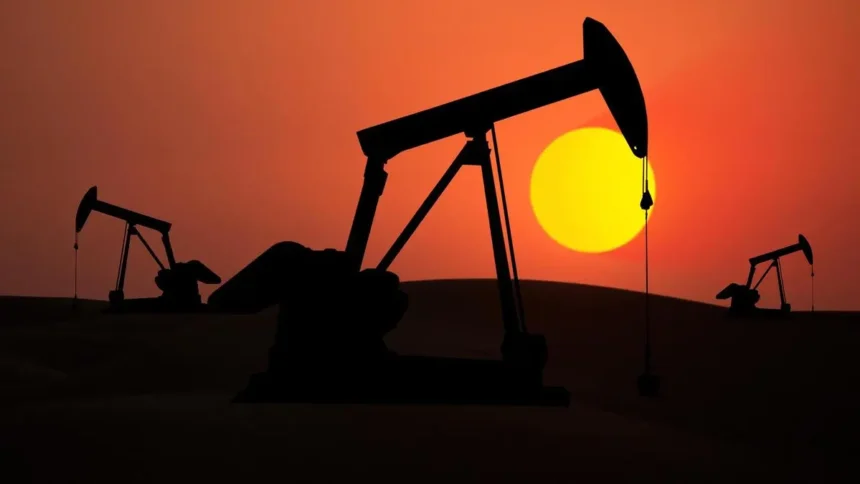Oil prices remained stable near a two-week high as traders evaluated the impact of newly imposed U.S. sanctions on major Russian producers amid a potential global surplus. West Texas Intermediate (WTI) saw little change, closing around $61 a barrel—up 7% for the week—following the U.S. government’s decision to blacklist Russia’s Rosneft PJSC and Lukoil PJSC to disrupt revenue needed for the ongoing conflict in Ukraine. These sanctions are anticipated to reduce Russian oil shipments to key buyer India, while Chinese state-owned companies have reportedly canceled some purchases.
Trend-following funds have increased their long positions, contributing to a short squeeze in the oil market. “Barring a downside shock, every scenario will result in large-scale algorithmic buying activity over the coming trading sessions,” stated Dan Ghali, senior commodity strategist at TD Securities.
The European Union has added pressure on Russia with a sanctions package targeting the country’s energy infrastructure, including a comprehensive transaction ban on Rosneft and Gazprom Neft PJSC. The oil market is currently grappling with a significant surplus, marked by record amounts of crude stored on vessels at sea. The International Energy Agency projects that global supply will outpace demand by nearly 4 million barrels per day in the upcoming year.
Janiv Shah, vice president at Rystad Energy, noted, “Overall, we estimate that between 500,000 to 600,000 barrels per day of Russian oil production is at risk of being curtailed.”
Kuwait’s oil minister indicated that OPEC stands ready to increase production if demand necessitates it. Chinese firms have already paused purchases of some spot cargoes, particularly ESPO, a grade from Russia’s Far East. President Donald Trump is expected to discuss the China-Russia oil trade with his counterpart Xi Jinping in an upcoming meeting.
Meanwhile, Reliance Industries Ltd, one of the largest importers of Russian oil in India, has secured millions of barrels of crude from the Middle East and the U.S. While the company typically sources Middle Eastern grades, recent transactions, some of which occurred prior to the U.S. sanctions, have been noted as unusually active by traders.
Market indicators reflect growing supply pressure, with the premium of front-month WTI futures over the next contract expanding significantly since the start of the week. This trend, known as backwardation, often signifies a tight market.
Although Russia expects to face budgetary challenges due to these sanctions, the country plans to leverage its established network of traders and shadow tankers to mitigate the financial impact, according to a Kremlin official. Rosneft, led by Igor Sechin—a close ally of President Vladimir Putin—and Lukoil are the two largest oil producers in Russia.
Additionally, Russia is confronting attacks on its energy infrastructure from Ukraine, with recent reports indicating a strike on Rosneft’s refinery in Ryazan.
For further stories, visit bloomberg.com.
Published on October 25, 2025.










